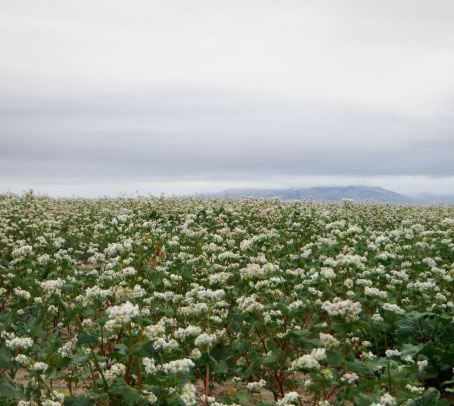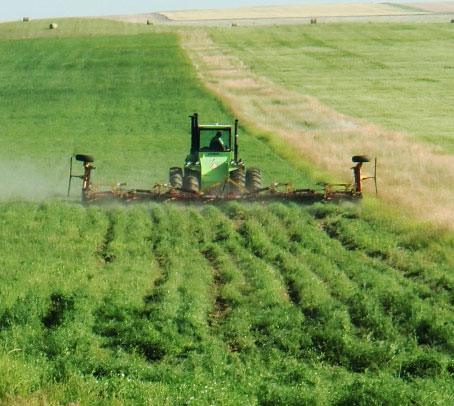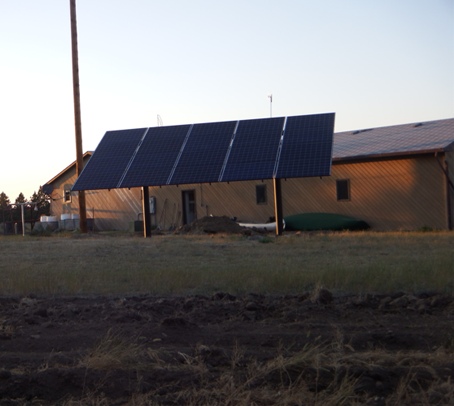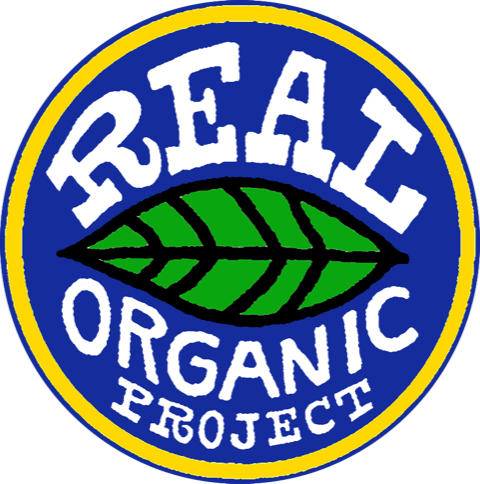Vilicus Farms practices advanced land stewardship at a scale that matters. Over 26% of the farm is in non-crop conservation and habitat. Vilicus Farms’ cropping system allows for us to farm alongside of Nature’s systems and mirror Her processes for sustainable food production. Organic production isn’t just growing food without chemical inputs. It’s a system that requires improving soil, water and associated resources while producing safe and healthy food for a growing population of informed consumers.
Vilicus’ fields are divided into 240 foot wide cultivated strips separated by 20-30 foot conservation buffers. In partnership with Xerces Society, many of these buffers are planted with a mixture of native wildflowers and grasses that provide habitat for native pollinators and wildlife. The buffers also greatly reduce the risk for wind erosion, and secure additional moisture from winter snow catch. It is the blueprint for the Vilicus Farms growing system, and is a dramatic visual statement of counter-cultural commitment to sustainability and diversity in a landscape dominated by chemical-fallow wheat monoculture
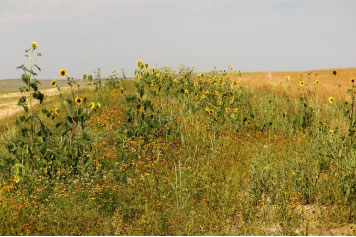
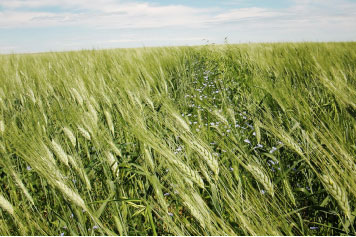
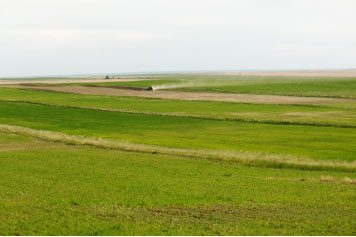
Green Manure Cover Crops
Often called “green manure,” cover crops can be legumes, grasses, or broadleaves that restore soil nutrients and minerals, and increase organic matter and microbial activity in the soil. In the Northern Great Plains ecosystem bare ground is not one of Nature’s practices. Cover crops provide a natural and vital ground cover during fallow periods, which preserve and enhance soil productivity naturally. Our cover crops are either a single species, such as chickling vetch, or an eight cover crop cocktail mix of species depending on the needs of the field.
Appropriate Tillage
At Vilicus Farms appropriate tillage is an indispensible part of soil, cover crop, and weed management. Our typical practice for cover crop termination utilizes a blade plow to cut the plants roots off just below the surface leaving above ground biomass and the below ground root system largely undisturbed. The resulting above ground plant mulch protects the soil from erosion, preserves soil moisture, and inhibits weed growth.
Renewable Energy
Vilicus Farms is committed to sustainability in all areas of the farm operation. In July of 2015 the Farm Headquarters became partially powered by a 5.2kW photovoltaic system. We installed one of the first grid-intertie systems on Hill County Electric Cooperative’s system. The system was partially funded by a USDA REAP grant. Bear Paw Development Corporation provided significant support in the grant application process http://www.bearpaw.org. We are always looking to move the dial forward on alternative energy options, including the use of bio-diesel in our trucks and tractors. Currently we are researching options on electric powered trucks and tractors, for we believe that divesting from fossil fuels is our best hope for a truly regenerative agricultural system.
Soil
Organic matter in the soil at Vilicus Farms has increased on average 3.2% each year.
- 2012-16 increased 6% on average every year fields that have been farmed the longest
- Fields that have been more productive = 27% SOM increases
- Land taken out of CRP averaged 2.1% SOM as baseline
The Xerces Society for Invertebrate Conservation
Vilicus has partnered with the Xerces Society for Invertebrate Conservation for research and application of integrated pollinator conservation in farming systems. To learn more about Xerces Society please visit: www.xerces.org
Bee Better Certified
The Bee Better Certified seal indicates that certified ingredients were grown in ways that support bees, butterflies, and other beneficial insects. To learn more about this certification please visit: www.beebettercertified.org
The Real Organic Project
Vilicus Farms was awarded the Real Organic Project Certification in 2020. Real Organic Project hereby certifies that the above operation is compliant with the standards developed by the Real Organic Project Standards Board. For a complete list of standards that this certification verifies, please visit:www.RealOrganicProject.org/standards
